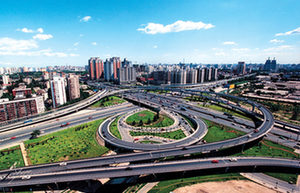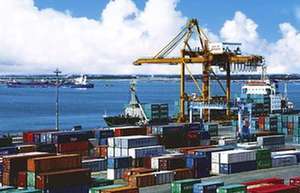Timetable for reform
By Andrew Moody (China Daily) Updated: 2014-03-21 08:16"The real problem in the global economy might not be China investing too much but Western countries consuming too much. Americans are always inviting Chinese investment and European politicians are always coming to China looking for investment since they can do nothing but promote consumption at home."
 New urbanization planambitious: Analysts
|
 |
Liu also believes that China's debt problem is often exaggerated with some estimating it at 240 percent of GDP when the National Audit Office data calculates it at just 58 percent.
"What some count in their figures is money the Ministry of Finance supplies to the market in order to enhance liquidity. This is good for the market. It is like China's QE (quantitative easing)," he says.
"It is not debt because most of the money that has been lent out this way to local governments and SOEs (state-owned enterprises) could be paid back."
George Magnus, senior independent economic adviser for UBS in London, takes major issue with such an argument and does think China's debt burden is a major problem. He also agrees with Pettis that an investment bust could occur within three years.
"I'd say 'within three years' is about right. The key preconditions are already in place: high levels of debt and credit intensity, slowing growth, and a rising incidence of financial stress and debt service capacity problems," he says.
Magnus, who presented similar arguments in his book, Uprising: Will Emerging Markets Shape or Shake the World Economy, also challenges Liu's view that investment making up half of GDP is normal for a developing country.
"Saying that the 50 percent rate is okay because China is a developing country doesn't fit either history or economics, so I don't know what the basis is," he says.
"If this were sound advice, then development would be easy. Every emerging country should have such an investment rate. The issue is not so much the rate but the speed of capital accumulation, the concentration of it in property and infrastructure, the reliance of capital expenditure on debt financing and that we know even now that the status quo can't carry on without leading to major economic disturbances."
The specter hanging over the Chinese economy is whether it risks suffering the same fate as Japan, which has experienced near-zero growth over the past two decades after a spectacular banking crash in the early 1990s.
Wolf at the Financial Times says, however, there are key differences between China now and Japan then.
"When Japan hit its crisis 20 years ago it had pretty well caught up on the developed world. China has perhaps another 20 to 30 years of fast growth potential," he says.
"On the other hand, however, I would argue that China is a more investment intensive economy and probably more unbalanced than Japan ever was. I would say that once it has made the necessary reforms to be a more consumption and private sector-led economy - which will probably be a painful adjustment - China's GDP per capita could perhaps double or even triple from where it is now."
|
 |
 |
- NHTSA says finds no 'defect trend' in Tesla Model S sedans
- WTO rare earth ruling is unfair
- Amway says 2014 China sales may grow 8%
- President Xi in Europe: Forging deals, boosting business
- CNOOC releases 2013 sustainability report
- Local production by Chery Jaguar Land Rover this year
- Car lovers test their need for speed in BMW Mission 3
- China stocks close mixed Monday

















